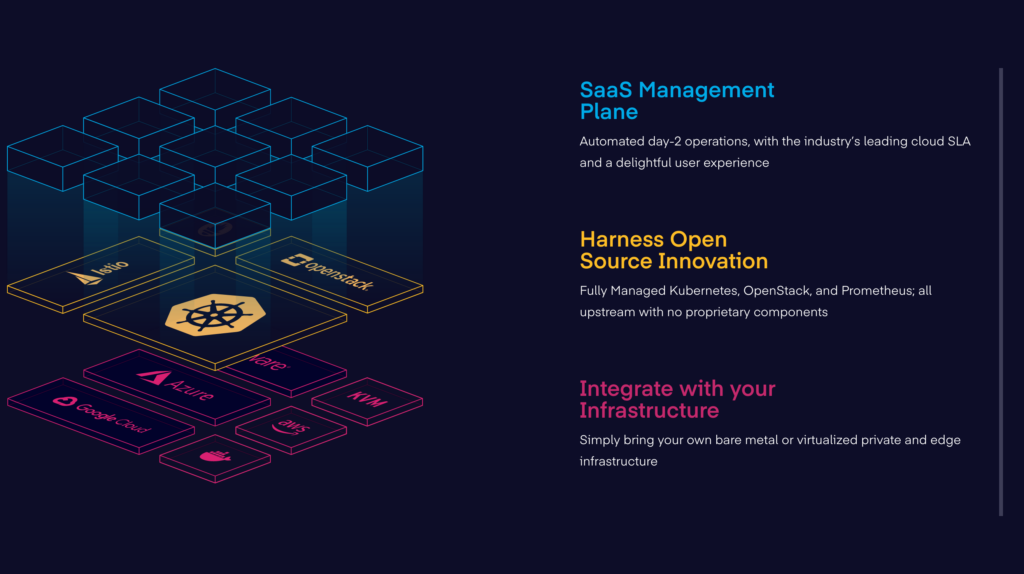There are only so many hours in a day. That’s a fact. And, due to that fact, businesses are forced to make decisions as to how their employees spend their time. This is no different in the realm of software development. These organizations must allocate resources to deal with monitoring and managing application deployments and infrastructure. Their endgame is to ensure a high level of system availability and reliability for the end users. Traditionally speaking, this has been a costly necessity.
With that in mind, innovation is critical for organizations to explore opportunities to expand the reach of their business. A competing priority to managing and maintaining existing systems, innovation requires time for technical personnel to research and develop new features that provide additional value to the customer. So the question remains, with time being a finite resource, how can software organizations make time for innovation to build value for the business?
Below, I will discuss how a managed Kubernetes solution makes working with Kubernetes easier. How it simplifies the process for managing highly available containerized applications and provides DevOps personnel with the freedom necessary to help the business grow.
How Managed Kubernetes Makes Kubernetes Easier
Kubernetes is an open source orchestration platform for managing and monitoring container-based applications and services. Organizations looking to deploy, manage and scale their containerized apps with a high level of efficiency likely utilize Kubernetes to do so. With that said, there are several different approaches to consider when getting started with Kubernetes. These include do-it-yourself (DIY) and managed Kubernetes solutions.
Utilizing a managed Kubernetes solution (as opposed to taking the DIY approach) helps to reduce the cost of building a production-ready Kubernetes deployment, while limiting the operational overhead that comes after you’re up and running. Here are a few reasons why.
Reducing the complexity of building a production-ready Kubernetes implementation
Delivering a production-ready Kubernetes cluster can be a daunting and costly endeavor when doing so in a DIY manner. Enterprise-level Kubernetes requires the configuration of many components and plugins that need to work together cohesively in order to provide highly available, scalable and observable systems. Managed Kubernetes solutions reduce this complexity by providing Kubernetes offerings that are fully outfitted with all the capabilities that make it production-ready.
In other words, using a managed Kubernetes solution means outsourcing the leg work to get to a production-level implementation. That leg work would otherwise require many hours of research and developer expertise, reducing the amount of time these resources have to contribute to other organizational goals.
Lowering the cost of Kubernetes cluster management
Getting Kubernetes into production represents just one hurdle in the effective management of containerized apps and services. Once these clusters are deployed, they must be monitored to ensure the organization is meeting their standards for performance and availability.
The level of necessary monitoring can be costly for an organization to configure and maintain. Managed Kubernetes platforms lower operational costs by taking the reigns in this respect. For instance, in the case of the managed Kubernetes offering from Platform9, monitoring capabilities come built-in. Clusters and infrastructure are monitored remotely at all times by Platform9’s SaaS management plane, complete with alert capabilities to notify the correct organizational personnel of any potential problems. This is bolstered by the presence of a pre-configured Prometheus instance for each cluster, providing increased visibility that ensures the organization is meeting KPIs surrounding performance while simplifying the process for troubleshooting any potential issues that may arise.
Taking Advantage of Time Saved to Drive New Business Value
As discussed above, the advantages of a managed Kubernetes solution (over DIY) results in time saved for developers and IT personnel. When used effectively, the recouped time can result in added business value for the organization. Consider the following ways in which developers and IT personnel can take advantage of this added time to drive the business forward.
Development of new features
With the cost of maintaining a highly-available system reduced, developers are afforded more time to design and develop new functionality. This, in turn, can result in added value for the consumer. Maybe there is a new feature that current users have been clamoring for, or a new group of customers that can be accessed with the addition of key functionality that will appeal to their needs. Reducing the amount of time it takes to manage and monitor existing systems and services allows the team to address these potential opportunities.
Modifications to existing functionality
All applications have functionality that would benefit from being reworked to be more user-friendly. Additional development time allows for staff to more completely analyze customer feedback, leading to modifications that create a more positive user experience. These modifications add value to the business by helping to ensure product viability in the marketplace. In short, a positive user experience helps retain current customers while creating a buzz that leads to growth.
Research and experimentation
In application development and DevOps, the landscape changes quickly. New frameworks and tools are developed and released with such rapidity that it can be difficult to stay educated, informed and current. This is doubly true when large swaths of time for developers and IT folks are consumed monitoring and maintaining the health of current systems. With the assistance of a managed Kubernetes solution, critical personnel have the bandwidth to stay up-to-date on industry tools and trends that typically end up assisting the organization in taking drastic steps forward in areas key to organizational success. For example, research and experimentation could be employed to refine important aspects of the development and delivery process such as software testing (possibly increasing test coverage), security compliance and incident management (finding ways to improve key performance indicators for your organization, i.e. reducing MTTA and MTTR).
Through research into domains such as these (and those like it), development organizations have the ability to further increase the efficiency of their internal processes as well as the overall reliability of their systems.
A Managed Kubernetes Solution from Platform9
Earlier in this article I briefly mentioned the managed Kubernetes offering from Platform9. Platform9 makes leveraging Kubernetes easier than ever, helping customers manage all Kubernetes clusters within a centralized user interface.
With Platform9 Managed Kubernetes (PMK), organizations can spin up Kubernetes clusters in an extremely efficient manner. Additionally, with PMK, operating and managing Kubernetes clusters is simplified. With 1-click cluster upgrades, advanced monitoring, and automatic security patching, organizations can leverage the benefits of Kubernetes in a production environment without the barriers of a steep learning curve and high operational costs standing in their way.




